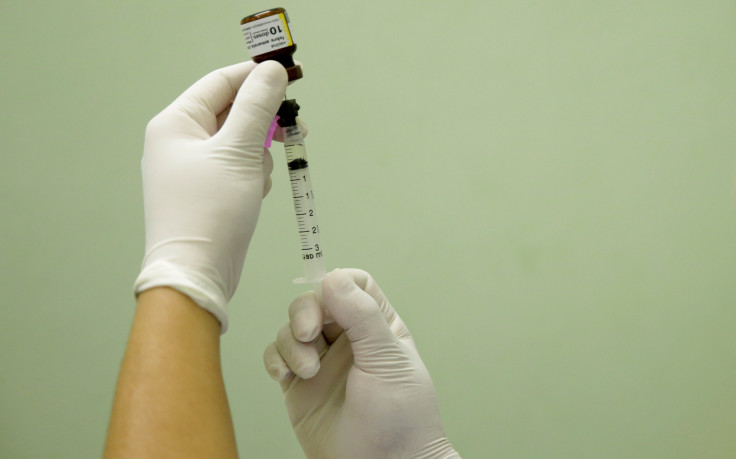Cure For Cancer? Vaccine Trial Of Personalized Injection Shows Promising Results

Preliminary trials of a new cancer vaccination yielded some promising results, according to research presented to the American Association for Cancer Research in Washington, D.C., last week. A personalized injection given to 12 people with skin cancer kept the patients cancer-free for more than two years, preventing them from relapsing.
The key to the vaccines’ success was the personalized element. Unlike previously tested cancer vaccinations that produced no concrete evidence of effectiveness, the injections targeted neoantigens, specific proteins that are unique to each person’s individual tumor.
Read: Cuban Lung Cancer Drug Coming To United States
The vaccine created by a team at the Dana-Farber Cancer Institute in Boston targeted about 20 neoantigens in each patient. The vaccinations were injected for five months without evidence of any severe side effects. Two patients with more aggressive cancers relapsed but were given an immunotherapy drug in conjunction with the vaccine that effectively eliminated the cancer. All 12 patients remained cancer-free for two and a half years.
“We’re in this very exciting, new moment,” said Catherine Wu, who lead the team at the Dana-Farber Cancer Institute, according to the journal Science.
Though the vaccinations’ initial success bodes well for future innovation in the area, the personalized elements that made them so effective also makes such vaccines expensive and time-consuming to manufacture. The results of the trial do, however, provide initial success for future researchers and doctors to build upon, and similar innovations were in the works in recent years.
Read: Researchers Test Vaccination Against HIV
Sean Parker, billionaire and co-founder of Napster, launched the Parker Institute for Cancer Immunotherapy in an attempt to eradicate cancer by way of similar vaccinations. The center partnered with the Cancer Research Institute last year to find new neoantigens for new cancer therapies.
“This experiment is truly remarkable because of its potential to help us more precisely identify abnormal proteins in an individual’s tumor that can be used as targets for personalized cancer immunotherapy,” professor Robert D. Schreiber of the Washington University School of Medicine in St. Louis and part of the Parker Institute’s collaboration, said in a December press release. “We believe that this type of precision medicine, used alone or with other forms of immunotherapy, will significantly improve our capacity to treat cancer patients more effectively and with fewer side effects than current treatments.”
© Copyright IBTimes 2024. All rights reserved.












